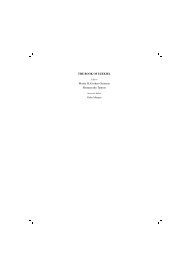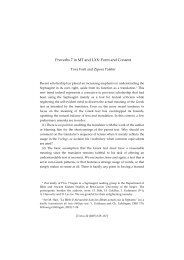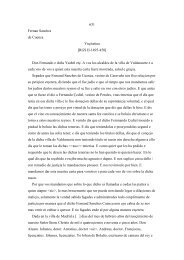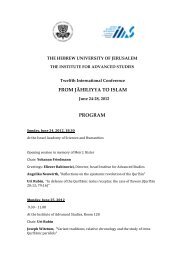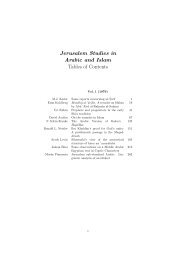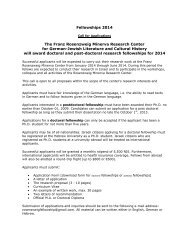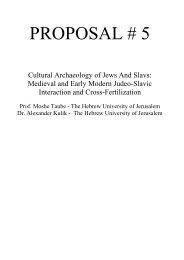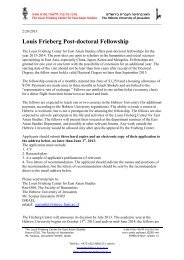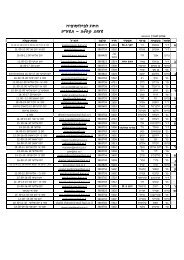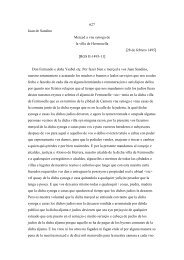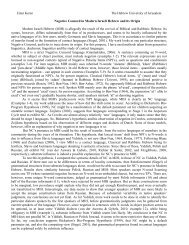Baber Johansen
Baber Johansen
Baber Johansen
You also want an ePaper? Increase the reach of your titles
YUMPU automatically turns print PDFs into web optimized ePapers that Google loves.
29<br />
As to the consensus: it is the agreement (ittifÁq) of the jurists of<br />
the epoch on the legal qualification of an event. Some say:<br />
‘scholars’ [instead of jurists]. That is a definition through that<br />
what is common [to many types of scholars]. Truly, the<br />
agreement of the grammarians, the philologists, and the exegetes<br />
is not an authoritative legal argument, even though they are<br />
scholars. Their assertions do not count when [the legal<br />
qualification of an event] is concerned. What is unanimously<br />
agreed upon as consensus is [a statement on a legal qualification]<br />
on which their formal legal opinion [i.e., the formal legal opinion<br />
of the jurists] concords in clear language. [In case] the scholars<br />
disagreed on the formal legal opinion of one of them or on his<br />
act, and the others remained silent without disapproving it in spite<br />
of the fact that [the information about it] was spread among them,<br />
then it is said: this is [still] an authoritative legal argument, but it<br />
is not a consensus. It is also said: it is a consensus. 83<br />
He returns to the same problem in his Book on Dissent (KitÁb al-khilÁf).<br />
Here he defends the right of the specialists to decide the cases that fall in<br />
their competency:<br />
One does not take into account the dissent of the scholars of the<br />
fundamentals [of religion] and they are the theologians, and not<br />
[the dissent] of the transmitters of ÎadÐth, and the grammarians,<br />
the philologists, those who study arithmetic and geometry, as long<br />
as they do not belong to those who are knowledgeable in the<br />
foundations and the branches of Islamic jurisprudence (bi-uÒÙl alfiqh<br />
wa-furÙÝihi). AÎmad [Ibn Íanbal, d. 855 in Baghdad,<br />
eponym of the Íanbalī school of law] said: ‘The choice [between<br />
options] are admissible only for a man who knows the Book and<br />
[the Prophet’s] normative practice (sunna), [if he is] among those<br />
who, if a problem is raised before them, look into the matter and<br />
compare it to the Book and the [Prophet’s] normative practice<br />
(sunna).’ A group of theologians held that no consensus is<br />
complete except with their concord (muwÁfaqa).



